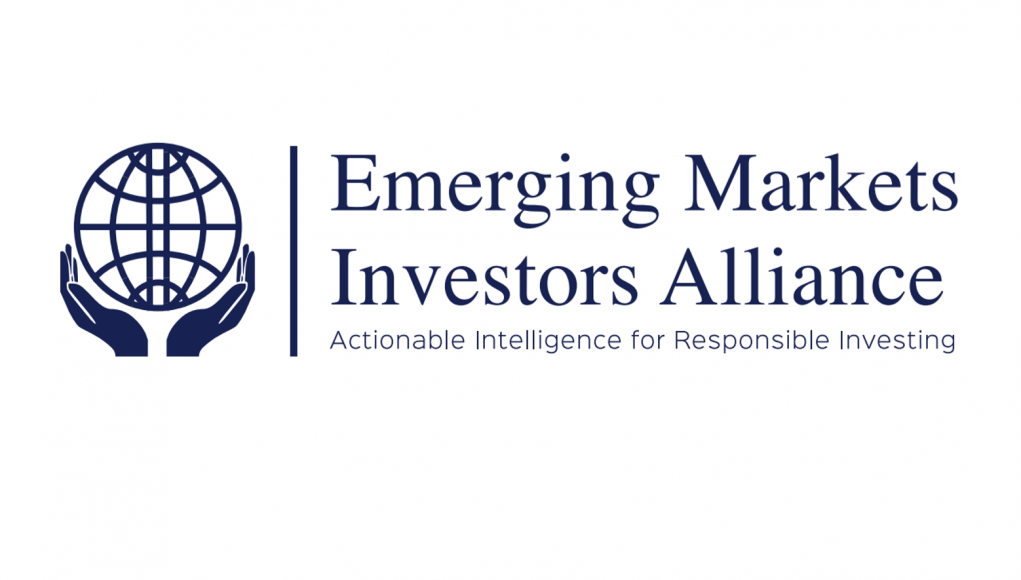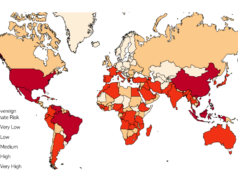 INSIGHT by Ashok Parameswaran, Founder and President, Emerging Markets Investors Alliance
INSIGHT by Ashok Parameswaran, Founder and President, Emerging Markets Investors Alliance
| Emerging Markets present unique challenges to ESG investors. The environment, social and governance lens applied to emerging markets must balance middle- and low-income local realities with global standards. However, it is precisely in emerging markets where addressing these challenges can benefit the widest group of stakeholders and move the needle on global best practice adoption. Emerging markets face a variety of challenges but today, all of them are grappling with the COVID-19 health crisis and the heavy toll on its societies and economies. Policy makers and investors can help build back better by applying ESG criteria while responding to this unprecedented crisis.
In the case of emerging sovereign debt, the Emerging Markets Investors Alliance believes it is critically important to apply ESG best practices to sovereign debt restructuring discussions. The COVID-19 health crisis has put enormous pressure on emerging economy balance sheets as countries spend more on healthcare and other social programs while their economies contract, currencies depreciate, and debts levels rise. The unprecedented speed and scale of the pandemic’s economic fallout has exacerbated pre-crisis vulnerabilities, triggering sovereign credit ratings downgrades, and forcing some countries to default while others teeter on the edge.
Efforts to respond to the unprecedented liquidity pressures facing EM countries have been underway and are likely to remain in place throughout 2021. For its part, the G20 moved rapidly to provide relief to 77 low income countries under the Debt Service Suspension Initiative in the late spring. Consequently, the Paris Club also granted some short-term breathing space through the end of 2020 and the International Monetary Fund (IMF) approved and dispensed significant emerging financing.
At the same time, the G20 called upon commercial creditors to voluntarily provide comparable forbearance. Few if any commercial creditors volunteered to participate in the temporary debt standstill but private creditors did continue to lend money to EM countries in the capital markets. In fact, 2020 is on track to be a strong year for emerging markets sovereign bond issuance, thanks to investors’ ongoing willingness to lend during the pandemic.
Significant uncertainties about the future remain, however. The global recovery is likely to be uneven and the path of the pandemic unpredictable. Capital markets, which have been buffeted by unprecedented global liquidity, are notoriously fickle. Should risk appetite wane or funding sources diminish, many emerging market countries could quickly find themselves in debt distress. Against this backdrop, it is no surprise that old solutions to past debt crises are being resurrected, with calls for a systemic remodeling of the international financial architecture.
However, market participants do not believe in a one-size-fits-all, blanket solution to sovereign debt concerns. Imposing one now, could do more harm than good because of the high risk of unintended consequences. From the debtors’ perspective, those consequences could include further credit-rating downgrades and loss of market access. From the creditor’s perspective the consequences include capital outflows and long-term reputational damage to the EMD asset class.
We believe that there may instead be different solutions for different contexts driven by the unique circumstances of individual debtors their unique group of creditors. Engaging in debt relief discussions may be more effective on a case by case basis. Some potential solutions may include IFI guarantees, while others will not. Some may require principal haircuts, while others may require short-term cash flow relief. But all solutions should have ESG criteria at their center.
The Emerging Markets Investors Alliance seeks to advance long term, sustainable solutions to debt sustainability in emerging markets by fostering a consensus among policy makers, government officials, sovereign borrowers and investors. We are building these dialogues based on this 3-point agenda:
〉Encourage policies to improve debt oversight to ensure that debt relief or borrowing is used for the intended purposes
〉Enhance fiscal transparency to strengthen government finances and accountability to stakeholders
〉Accelerate efforts toward environmental sustainability.
We believe this crisis offers a unique opportunity to change the market by design and not by destruction.
By emphasizing policies to improve debt oversight, enhance fiscal transparency and accelerate efforts toward environmental sustainability, we believe that EM borrowers can attract new pools of capital, including ESG oriented capital, which will be essential to filling that gap and to making progress towards Sustainable development Goals. To this end, we’ve published our white paper on Emerging Markets Debt Relief and we’ve written to the G20.
Market-led initiatives offer a unique opportunity to build back better by improving bond structures to be more flexible and by including covenants that align the borrower’s incentives with sustainable outcomes, such as those measured by the SDGs. Investors have expressed an interest in identifying common objectives with the official sector and in collaborative approaches that put sustainability at the center of any coordinated debt initiative. Now we must continue to bring policy makers, government officials, sovereign borrowers and investors to the table to advance these policies, implementing best policies today and for the future.
| Special thanks to Abby McKenna in preparation of this article. Abby is Senior Advisor to the Emerging Markets Investors Alliance and was formerly head of the Emerging Markets Debt group at Morgan Stanley Investment Management.
| Ashok Parameswaran is the founder of the Emerging Markets Investors Alliance. He has over 20 years of experience relating to emerging markets. Based in New York City, Ashok was Vice President for emerging markets sovereign analysis at AIG Investments, overseeing $7 billion in emerging market credit exposure. Previously, he was Vice President at Invesco, overseeing $250 million of emerging market credit exposure. Ashok was part of an Invesco team that performed in the top third of Bloomberg-listed emerging market peers for 4 out of 5 years.
Ashok also has significant experience in international economics and development. At the US Treasury Department, he advised the US Treasury Secretaries Paul O’Neill and John Snow on economic policy towards South Asia, the Middle East, and East Africa. During this time, he served as Treasury’s Coordinator for Afghan Reconstruction. Also, Ashok helped to start the India Program at the Center for Strategic and International Studies (CSIS), where he worked with CSIS Executive Vice President Doug Johnston, the late US Ambassador to India William Clark, and the late Congressman Stephen Solarz, former Chair of the House Subcommittee on Asia and Pacific Affairs.
| The Emerging Markets Investors Alliance is a 501(c)(3) not-for-profit organization that enables institutional emerging market investors to support good governance, promote sustainable development, and improve investment performance in the governments and companies in which they invest. The Alliance seeks to advance these issues through collaboration among key stakeholders.









